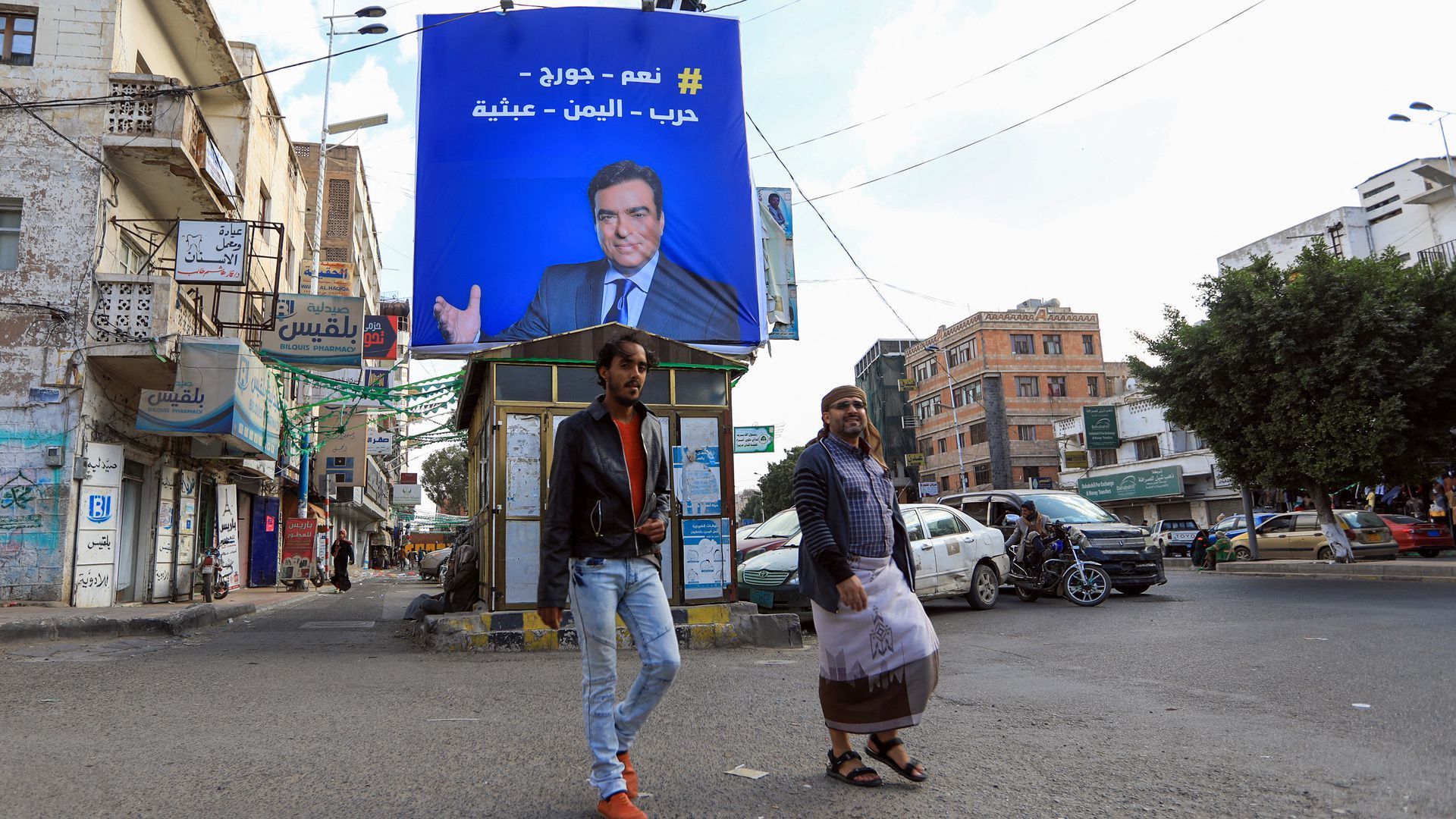Why Saudi Arabia is outraged at Lebanon
Add Axios as your preferred source to
see more of our stories on Google.

A billboard of George Kordahi in Sana'a, Yemen, put up by the Houthi rebels to support his comments on the war. Photo: Mohammed Huwais/AFP via Getty.
An interview with Lebanon’s new minister of information, TV celebrity George Kordahi, is sparking a crisis between Gulf countries and the fragile new government in Beirut.
Why it matters: The crisis shows how a possible thawing of relations between Saudi Arabia and Iran could be complicated by Tehran’s regional proxies such as Hezbollah in Lebanon and the Houthis in Yemen.
Background: Kordahi, a 71-year-old Maronite Christian, began his career as a journalist and became popular in the UAE and Saudi Arabia when he hosted the local version of "Who Wants to Be a Millionaire?”
- His appointment to the new government in Lebanon was supported by Hezbollah.
- In August, before joining the government, Kordahi gave an interview in which he criticized Saudi Arabia for the war in Yemen. The interview wasn't published until last week.
- In it, Kordahi asserted that the Iran-backed Houthi rebels were only engaged in self-defense against the Saudi-led coalition, which was truly responsible for the war.
Driving the news: Saudi Arabia took offense and cut all ties with Lebanon, including blocking Lebanese imports. Then the country's Gulf allies joined in.
- The UAE Ministry of Foreign Affairs has withdrawn its diplomats from Beirut and told Emiratis in Lebanon to return home.
- Kuwait and Bahrain have called their ambassadors in Beirut home and asked Lebanon's representatives in their countries to leave.
- Qatar and Oman have issued statements criticizing Kordahi’s comments but didn’t take further action
State of play: Lebanese Prime Minister Najib Mikati, who formed a government in September after a 13-month political deadlock, urged Kordahi to "put his patriotic sense above all else" to defuse the crisis.
- Lebanese Maronite Patriarch Bechara Boutros Al-Rahi has reportedly advised Kordahi to step down as well, but so far Kordahi has refused.
- Even if Kordahi does resign, it would not necessarily resolve the crisis and could precipitate the collapse of the fledgling Lebanese government, which consists of a precarious balance of competing factions.
- Mikati faces the daunting challenge of trying to reset relations with Gulf countries, which are historically generous donors but have become increasingly wary of Hezbollah’s stranglehold influence, while keeping his government together.
What to watch: At COP26 in Glasgow, Mikati lobbied his Kuwaiti and Qatari counterparts for support and also visited the UAE and Saudi Arabia pavilions at the conference exhibition. So far, Saudi Arabia has not been moved by such gestures.
- France and the U.S. want to avoid a collapse of the government in Beirut and are trying to end the Saudi-Lebanese crisis, diplomatic sources said.
